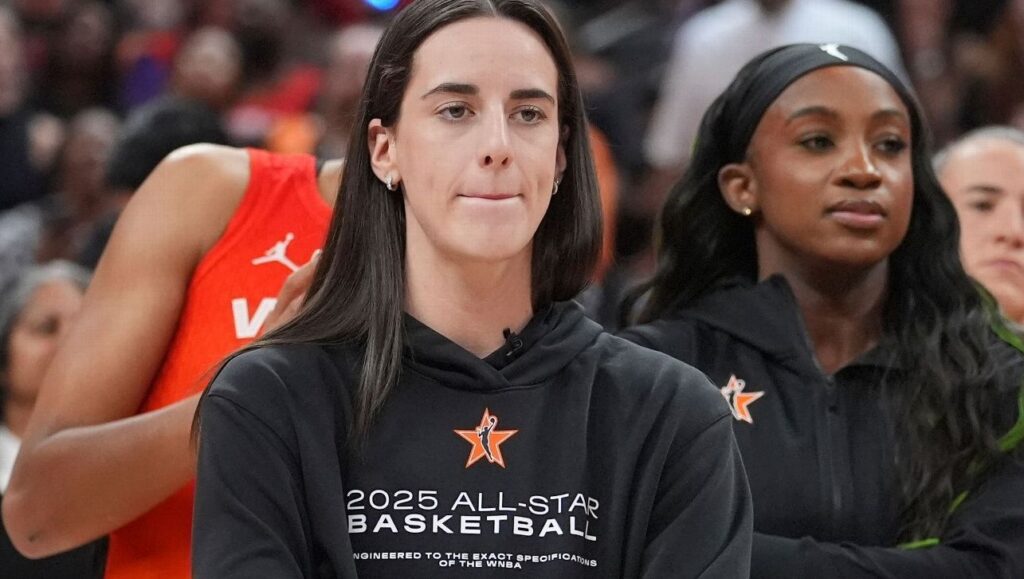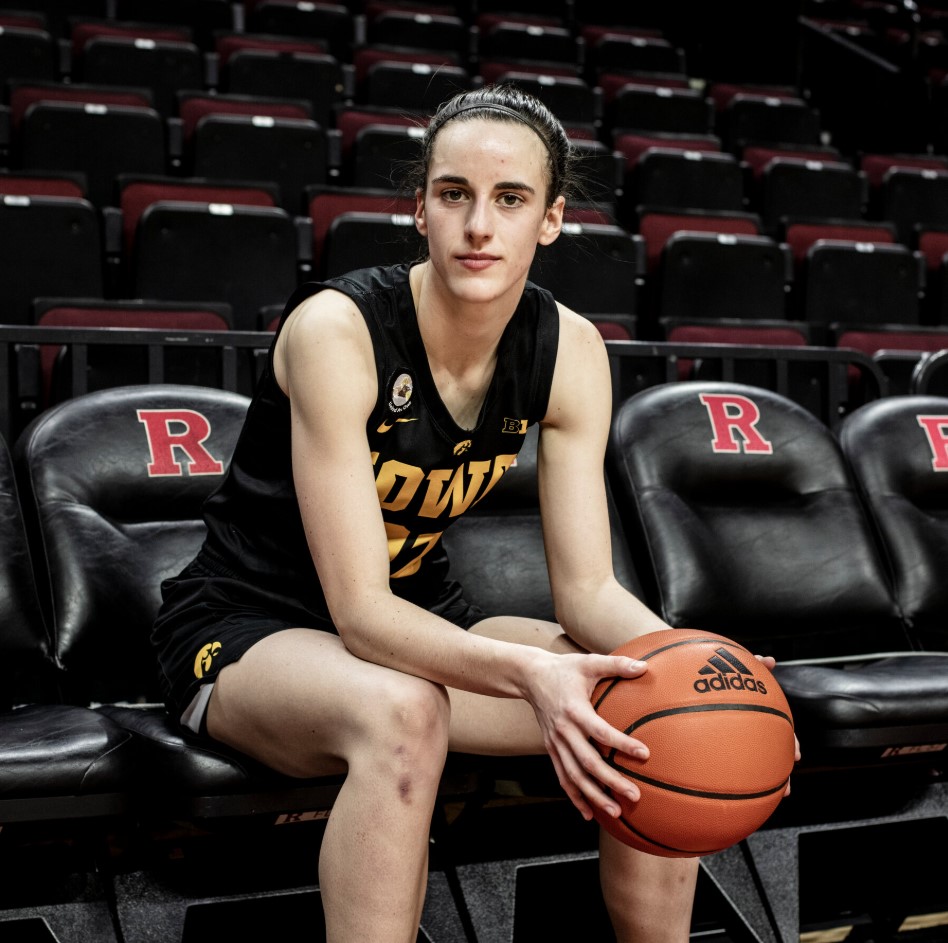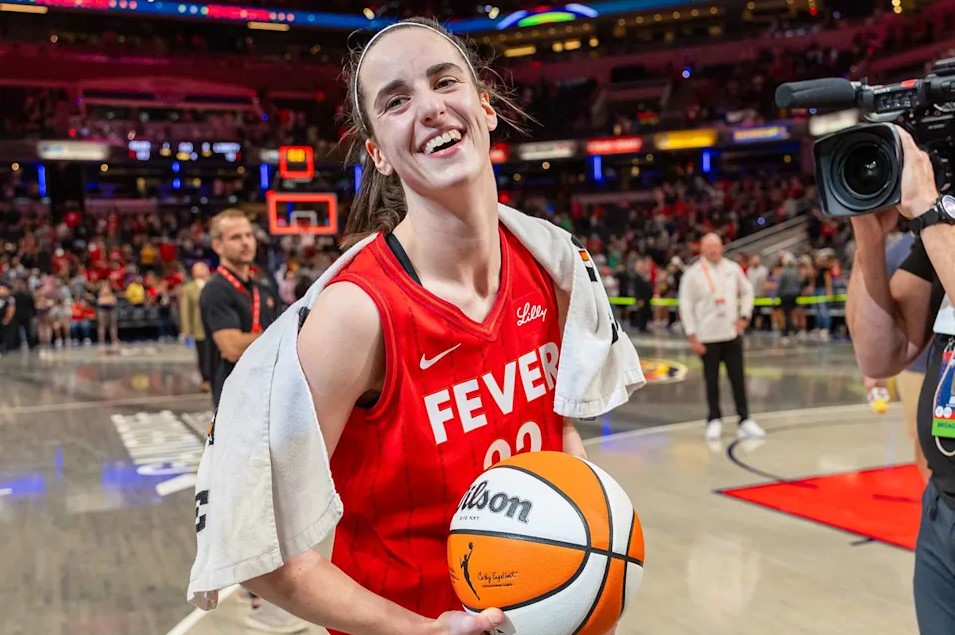The Human Side of a Superstar: When Caitlin Clark Was Too Scared to Leave the Locker Room
In the glittering world of professional basketball, where athletes are often perceived as invincible warriors who fear nothing on the court, Indiana Fever guard Caitlin Clark has revealed a surprisingly relatable and endearing vulnerability that humanizes her superstar status. The former University of Iowa sensation, who has captivated millions of fans with her extraordinary talent and fierce competitive spirit, recently opened up about a time during her high school years when she was genuinely terrified of facing someone far more intimidating than any opponent she had ever encountered on the basketball court: her own mother.

During a candid interview featured on ESPN, Clark made a confession that perfectly encapsulates the universal experience of young athletes who must navigate the delicate balance between competitive fire and family expectations, admitting that technical fouls during her high school career would leave her cowering in the locker room long after games had ended. “When I used to get technical fouls in high school, I did not want to come out of the locker room after the game because I knew my mom would be mad,” Clark revealed, painting a picture that resonates with anyone who has ever dreaded disappointing a parent who had invested countless hours supporting their athletic dreams.
This revelation becomes even more fascinating when considering Clark’s current reputation in the WNBA, where she is known for frequently arguing with officials in a manner reminiscent of NBA stars like Luka Dončić and Draymond Green, suggesting that her passionate approach to the game has remained consistent throughout her career despite her early fears of maternal disapproval. The technical foul issue has followed Clark into her professional career, as she accumulated six technical fouls during her rookie WNBA season, bringing her dangerously close to earning an automatic one-game suspension that would have been triggered at seven technicals.

What makes Clark’s story even more compelling is the nuanced family dynamics she describes, particularly the protective role her father played in shielding her from her mother’s potential anger during AAU tournaments, demonstrating the complex web of relationships that shape young athletes’ experiences. “But if I got one during an AAU tournament, I don’t think my dad would tell my mom,” Clark explained, adding with a knowing smile, “He knew my mom would not be happy, but he understood it from a competitive standpoint,” revealing how her father served as a buffer between Clark’s competitive instincts and her mother’s high standards for sportsmanship.
The timing of these revelations couldn’t be more relevant, as the WNBA has recently adjusted its technical foul suspension threshold from seven to eight fouls per season, a change that coincides with the league’s expansion from 40 to 44 regular season games and reflects the league’s recognition that passionate players like Clark bring intensity that sometimes crosses the line into technical foul territory. This policy adjustment suggests that Clark’s tendency to express frustration with officiating is not unique among elite players, and the league has adapted its rules to accommodate the emotional investment that drives the most competitive athletes.

Clark’s honest admission about her high school fears provides a refreshing glimpse into the psychology of elite athletes, revealing how even the most confident competitors can be reduced to anxious teenagers when faced with the prospect of disappointing the people who matter most to them. Her story illustrates the profound influence that parental expectations can have on young athletes’ behavior, even when those athletes possess the talent and drive to eventually reach the pinnacle of their sport, demonstrating that family relationships remain a powerful motivating force regardless of professional success.
The contrast between the fearless competitor fans see dominating WNBA courts today and the nervous teenager hiding in locker rooms to avoid her mother’s disappointment creates a compelling narrative that makes Clark’s journey even more remarkable and relatable. This vulnerability, combined with her exceptional talent and competitive fire, helps explain why Clark has become such a beloved figure in women’s basketball, as fans appreciate athletes who can acknowledge their human moments while continuing to push the boundaries of excellence in their sport.

As Clark continues to establish herself as one of the WNBA’s brightest stars, her willingness to share these personal anecdotes about family dynamics and youthful fears serves as a reminder that behind every professional athlete’s polished exterior lies a complex individual shaped by the same fundamental relationships and experiences that influence all of our lives.